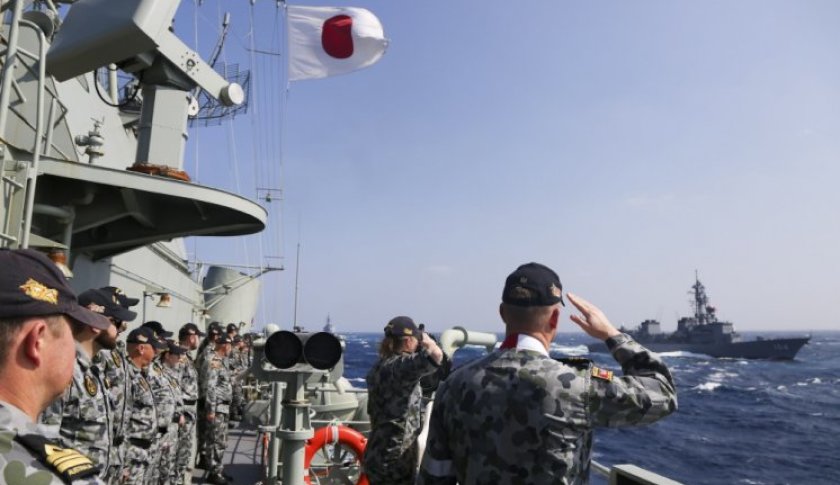Australian Foreign Minister Julie Bishop met with her Japanese counterpart, Taro Kono, and US Secretary of State Michael Pompeo in Singapore over the weekend for the eighth Trilateral Strategic Dialogue (TSD).
As part of the eighth TSD, Australia, Japan and the US focused on a number of key areas of economic, defence, counter-terrorism and territorial mutual interest, including:
- Creating a free and open Indo-Pacific region that is focused on upholding the international rules-based order;
- Committed to ensuring the full de-nuclearisation of the Korean Peninsula and North Korea;
- Expressed serious concerns about the militarisation of the South China Sea (SCS);
- The creation of a Code of Conduct (CoC) governing the SCS;
- Countering the proliferation of both state and non-state cyber warfare capabilities;
- Responding to regional counter-terrorism through trilateral counter-terrorism consultations; and
- Commitment to increasing the co-operation between Australia, Japan and the US in the Indo-Pacific.
As part of the trilateral agreement, each of the representatives reaffirmed the commitment to working together "to maintain and promote a free, open, prosperous and inclusive Indo-Pacific region".
This commitment is key to ensuring that the trilateral partnership continues to uphold a 'rules-based order', including assurances that:
- Disputes are resolved peacefully in accordance with international law and without the threat or use of force;
- States are resilient to coercion;
- Freedom of navigation and overflight and other internationally lawful uses of the sea are upheld; and
- Markets remain open.
Building on the apparent success of the US-North Korean Leadership summit from earlier in the year, the respective representatives reaffirmed their commitment to ensuring that North Korea continues to uphold its commitment to "full de-nuclearisation, ending human rights violations and abuses, and to immediately release all foreign nationals currently being held by North Korea".
With the growing militarisation and competition in the SCS, the US, Japan and Australia reaffirmed growing concerns about the land reclamation, construction and militarisation of disputed features and called on all parties to embrace the United Nations Convention on the Law of the Sea (UNCLOS) and fully respect freedom of navigation and overflight and other lawful uses of the seas in the SCS and around the world.
Supporting this, the ministers emphasised the importance of the July 2016 Philippines-China Tribunal's award and the developing Code of Conduct for the SCS, calling for any CoC agreement to be:
- Consistent with existing international law, as reflected in UNCLOS;
- To not prejudice the interests of third parties or the rights of all states under international law;
- To reinforce existing regional architecture; and
- To strengthen parties’ commitments to cease actions that would complicate or escalate disputes.
The TSD members expressed growing concerns about state and non-state actors who are undertaking malicious cyber activities. The ministers reaffirmed a joint commitment to promote an international stability framework for cyber space based on the application of existing international law to state behaviour in cyber space, including:
- Adherence to voluntary, non-binding norms of responsible state behaviour in cyber space in peacetime; and
- The implementation of confidence building measures, supported by co-ordinated capacity building programs.
Additionally, the ministers agreed to deepen practical co-operation to "better deter, mitigate, publicly attribute, and counter malicious cyber activity, and provide clear and consistent messaging of the consequences of such activity. The ministers resolved to continue to call out unacceptable behaviour in cyber space".
The growing threat of terrorism was also a key area of focus for each of the members, who discussed ways to jointly counter terrorism and violent extremism, including through trilateral counter-terrorism consultations. This includes protecting soft targets and countering terrorist financing.
The ministers resolved to advocate for and strengthen existing information sharing mechanisms, and to combat the flow of foreign terrorist fighters both to and from conflict areas. The ministers also expressed their concerns regarding the potential for ongoing violent extremist activity in the southern Philippines. They urged increased co-operation in the Indo-Pacific to counter such terrorist activity and pledged their continued support for these efforts.
The full Trilateral Strategic Dialogue joint statement is available here.



